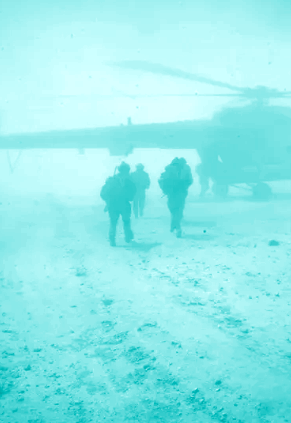Defence RC report released
 This article contains mention of suicide.
This article contains mention of suicide.
After a three-year inquiry, the Royal Commission into Defence and Veteran Suicide has released its final report, delivering 122 recommendations to address the systemic failures contributing to veteran suicides in Australia.
The report highlights severe deficiencies in leadership, culture, and care within the Australian Defence Force (ADF) and the Department of Veterans' Affairs (DVA).
Veteran suicides are significantly higher than the national average - 26 per cent higher for men and 107 per cent higher for women.
The commission’s findings suggest these statistics are due to broader institutional failures, rather than individual mental health issues.
Initially focused on deployment-related trauma, the inquiry quickly uncovered institutional issues within the ADF.
“What is clear from some of the horrible stories that we’ve heard is that many people simply turned a blind eye, over many years,” said Commissioner Nick Kaldas.
The commission's forensic examination increased the recorded veteran suicides from 300 to approximately 1,700.
This figure does not account for suicides disguised as accidents, such as single-vehicle crashes.
The commission found that the ADF’s hierarchical, command-and-control culture plays a major role in the high suicide rates, particularly among personnel who have not been deployed.
Many are subjected to bullying and “administrative violence” - a term developed during the inquiry to describe abusive acts by commanders that undermine the identity and purpose of service members.
Physical and sexual violence were also widespread, according to nearly 6,000 submissions.
A key recommendation is establishing an independent body to oversee efforts to reduce veteran suicides.
This echoes a proposal from a 2005 Senate inquiry that was rejected by senior government officials.
The commission also calls for reforms to ADF leadership, which would see commanders evaluated not just on operational performance but on their ability to foster positive cultural and wellbeing outcomes.
Addressing sexual violence and improving support for veterans transitioning to civilian life are also crucial recommendations, given the widespread failures of DVA systems to provide timely help.
While the Department of Veterans' Affairs seems prepared to implement changes, the ADF has shown resistance.
Kaldas publicly criticised the force’s obstruction at the National Press Club in May.
“I think there’s been systemic issues such as relying on parliamentary privilege for reports that have been tabled in parliament, therefore making it impossible for us to rely on or use those reports,” he said.
Despite the barriers, the commission is hopeful.
“We have come across many, many really motivated, excellent people, both within the ADF and the Department of Veterans' Affairs, who have tried their best within the system,” Kaldas said.
The commission has made a case for reform within the ADF, citing recruitment and retention challenges as further reasons for urgent change.
The final report outlines a path forward with its 122 recommendations, but it remains to be seen how effectively these will be implemented.
For anyone experiencing distress, Defence All-Hours Support Line is accessible on 1800 628 036, Open Arms on 1800 011 046, Lifeline on 13 11 14 or Beyond Blue on 1300 22 4636.







 Print
Print